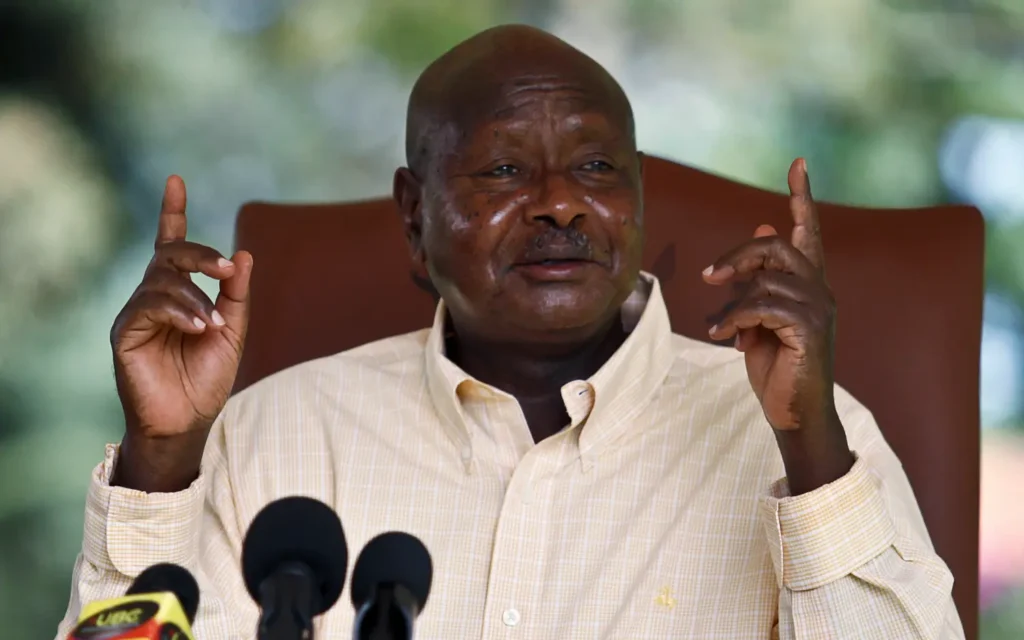Uganda’s President Yoweri Museveni has approved a change in legislation that now allows civilians to face trials in military courts under specific conditions.
An earlier legal provision allowing such trials was deemed unconstitutional by the Supreme Court in January.
Prior to that decision, civilians could be tried in a military court if they were caught with military paraphernalia like firearms or army attire.
Advocates expressed concerns that the law was exploited to target critics of the government.
Lawmakers approved the amendment last month amidst a significant police presence and a walkout by opposition members, who contended that it contravened the ruling from the nation’s top court.
In January, judges ruled that military courts lacked both impartiality and the capability to perform judicial functions, as reported by the International Society for Human Rights at that time.
The new amendment seems to address some of the previously highlighted concerns.
It stipulates that officials overseeing the tribunals must possess appropriate legal credentials and education.
Moreover, it emphasizes that while conducting their judicial duties, these officials should maintain independence and fairness.
Related Articles:
- Kenya President urges immediate deployment of EAC regional Force to Eastern Congo
- Trump slams visa ban on Nigerians over corruption allegations, lack of intelligence sharing
- Ngûgî wa Thiong’o: The dilemma of the critical African voice
For years, activists have maintained that the government utilized military courts to silence dissent.
A notable case occurred following the November arrest of veteran opposition figure Kizza Besigye.
He was detained in neighboring Kenya, brought back across the border, and subsequently charged in a military court with illegal possession of firearms and attempting to acquire weapons overseas, allegations he refuted.
Those accusations were dismissed when his case was moved to a civilian court following the ruling of the Supreme Court.
Museveni, in power since 1986, had previously justified the existence of military courts by stating they were necessary to combat the “widespread activities of criminals and terrorists using firearms to kill people without discrimination.”
He argued that civilian courts were overwhelmed and unable to “swiftly address these armed offenders.”
